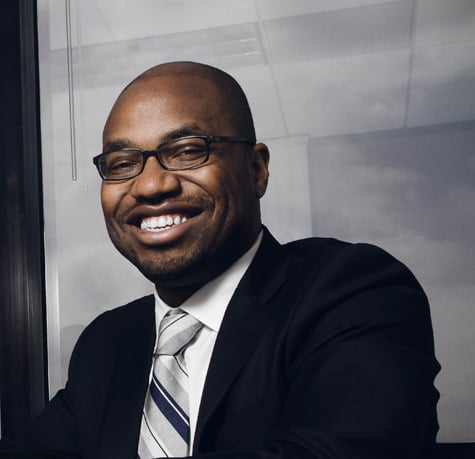Jovan Johson is an attorney with L.A. firm Johnson & Moo. Like Novy PR, Jovan specializes on helping indie and mobile developers grow their companies from one-man start-ups to successful studios with a global audience.
Stray Pixels asked Jovan a few questions about game attorneys, contracts, working with foreign publishers and more. Let us know what you think in the comments!

1. When should indie studios seek out a lawyer?
Indies should probably seek legal counsel once they begin working with others, including artists, programmers, marketers, etc. This will help ensure the terms of their agreement are written clearly and structured properly.
For example, last year my partner and I met with a potential client who produced a song (which, of course, is a form of intellectual property) that turned out to be quite successful. Gross revenue was close to $460,000, costs and expenses were approximately $25,000. Under his arrangement with the recording artist the producer’s share should have been $160,000, give or take.
The producer’s first problem was that he drafted the contract he signed with the artist. The document he came up with was quite detailed but didn’t make any sense. I’m not saying that as an attorney. I’m saying that as someone who reads and writes English. Next, he involved himself with investor-partners who were attorneys. The producer didn’t have an attorney review this second deal either. At the end of the day, he’s probably going to wind up with nothing to show for his efforts. In fact, he may be in debt before the ordeal is over. If he would have retained counsel from the beginning, he would probably have $160,000 in his bank account right now.
Some people think they cannot afford a lawyer. If you’re doing business and want to succeed, you can’t afford not having a lawyer.
2. How are mobile deals structured nowadays? What is the publisher role, for example?
The publisher’s role is to promote the game and sell units. They should provide input on polishing the game and a base level of PR and marketing. For that they receive a percentage of revenue, which may seem high to some developers. However, it’s better to have part of a financially successful game than 100% of one that sells 200 copies.
Some publishers have relationships that help with key placements within the Android Market and App Store, but that will not show up as a contract term.
3. What should developers watch for before signing a contract?
It’s always important that both parties have a clear understanding of what’s expected of them. Warm and fuzzy feelings are nice but the content of the written contract is what matters.
Some common issues that developers need to understand before signing a deal are:
- Can either party terminate the contract before the term is over? If so, how?
- How will disputes be resolved?
- What exactly is the developer giving up? Is it worth it?
4. Can working with foreign capital or a foreign publisher affect the way a contract is drafted?
Absolutely. If you plan on dealing with a foreign publisher you may have an issue in terms of choice of law. If the publisher insists on their local law, it’s a good idea for the developer to hire an attorney who is familiar with those laws.
Any deal regarding capital gets complicated quickly because it may be a securities transaction. Most attorneys are NOT capable of reviewing these contracts. Get help immediately if you’re thinking about a deal with capital, especially if it’s foreign capital.
5. Tell us about yourself. Were you always a gamer? When did you decide to focus on indies?
I’ve actually been a gamer on-and-off. Of course, I can remember spending many hours playing Nintendo when I was in elementary school. Same thing throughout high school, college, and after law school. Let’s just say if I get into something, I’m really into that thing. It’s best that I stick to casual games.
One of my brightest friends released a couple of iOS games. He worked with a small team on a handshake deal. This made me wonder about others making games without business and legal assistance. I’ve had a great time working with all of my indie clients. That makes me feel like I’m on to something.
6. Where do you see the game industry in the next 10 years?
I think gaming may go the way of movie studios. That is, large game companies who are financially sound will focus on blockbusters. That leaves a big opening for the indies to produce most everything else.
I also think mobile games will continue eating away at the market share console games have enjoyed for so many years. Game engines like Unity allow for increasingly advanced mobile games. It’s astounding, really. Google and Apple release mobile operating systems at a break-neck pace and developers take advantage of that.
Another advantage mobile developers have is that very few people want to buy a new Sony / Microsoft / Nintendo console year-after-year, but statistics seem to indicate that many people will opt to buy a new iPhone annually.
7. Is there anything else you’d like to say to Novy PR’s clients and readers?
Don’t hesitate to reach out to us for help. We answer emails and return phone calls. Kamal Moo, my partner, focuses on music and film law and has been around the block. We’re currently working with a fan-funded project, Angry Video Game Nerd The Movie. If you have a creative project in the works, there’s a good chance my firm can provide the attention and advice you need.
You can learn more about Johnson & Moo at http://www.johnson-moo.com/. You can also follow Jovan on Twitter.